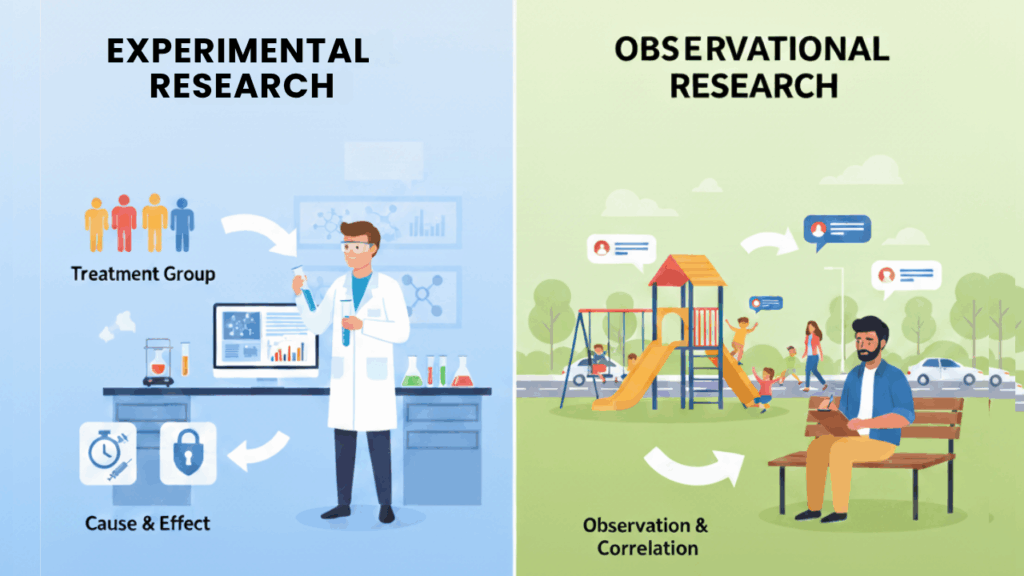23Oct

In research, choosing the right approach can make or break your study. Two of the most common methods are experiments and observations. While they might seem similar at first, they are actually quite different in how data is collected, analyzed, and interpreted. Understanding these differences is crucial for any researcher, whether you’re a student, academic, or professional. In this article, we’ll break down 10 crucial differences between experiment and observation that every researcher should know—so you can design your study smarter and get reliable results.
Experimental research is a type of study where researchers actively manipulate one or more variables to observe their effect on an outcome. In this method, the goal is to establish a cause-and-effect relationship. Researchers often use control groups and variables in experiments to compare outcomes and reduce bias.
Unlike experiments, observational research does not involve manipulating variables. Researchers observe and record behavior or outcomes as they naturally occur. This method is particularly useful when experimentation is impossible or unethical.
Understanding the experimental vs observational study differences helps researchers select the most appropriate method for their objectives.

Selecting between experimental and observational research depends on several critical factors that researchers must consider before starting a study. Making the right choice ensures that the data collected is reliable, valid, and relevant to your research goals.
By carefully evaluating these factors, researchers can select the method that aligns with their study goals, ensures ethical compliance, and maximizes the reliability of results.
Understanding experimental vs observational research methods is fundamental for producing high-quality, reliable research. While experiments provide control and causality, observational studies offer insights into real-world behaviors. Researchers must weigh advantages, disadvantages, ethical considerations, and study goals when choosing the appropriate method.
For researchers aiming to enhance their study outcomes, platforms like Kenfra Research provide tools and guidance for both experimental and observational approaches, ensuring robust, evidence-based research.

Publishing in the IEEE Transactions becomes a big dream for multilayered PhD scholars and researchers. Successful IEEE Transactions has... read more
The dearth of internships for engineering students is a concern that has been raised in various regions and contexts. Internships... read more

In 2025, choosing the right web hosting provider is more crucial than ever. Whether you're launching a personal blog,... read more
Indian Institute of Technology Mandi IIT Mandi, officially known as the Indian Institute of Technology Mandi, is one of the... read more
Jawaharlal Nehru University (JNU): Jawaharlal Nehru University (JNU) is a prestigious public research university located in New Delhi, India. Established in... read more

Updated List of Annexure Journals for Anna University read more

Writing an abstract is a very important part of academic writing. If you are a student, researcher, or scholar, you’ll... read more

Publishing a research paper in a reputed journal is a significant milestone for PhD scholars. However, selecting the right... read more
WhatsApp us
Leave a Reply